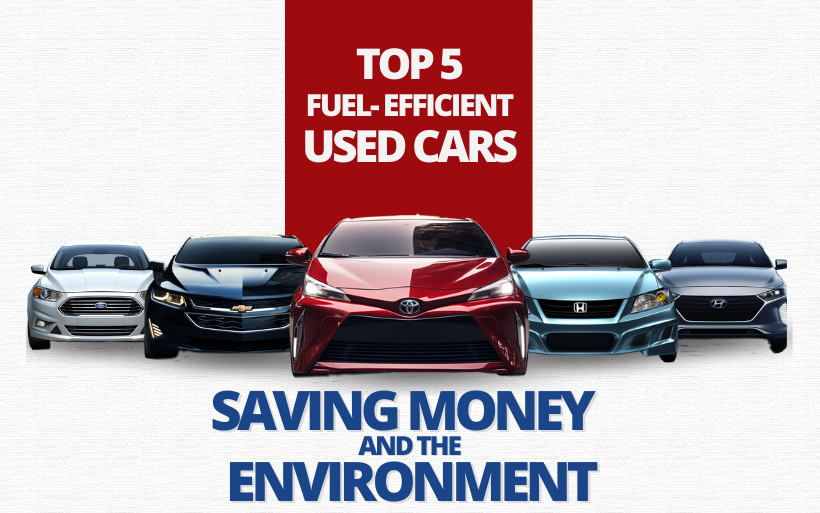Urban Insights
Exploring the pulse of modern cities.
Fuel Efficiency on Wheels: Why Your Next Car Should Be a Sipper
Discover the top reasons why a fuel-efficient car is your best choice for savings and eco-friendliness. Drive smarter and save big!
Top 5 Fuel-Efficient Cars of 2023: Which One is Right for You?
As we move through 2023, the demand for fuel-efficient cars continues to grow. With rising fuel prices and increasing environmental concerns, consumers are searching for vehicles that offer superior mileage without sacrificing performance. In this article, we explore the Top 5 Fuel-Efficient Cars of 2023, highlighting the best options available on the market today. From compact hybrids to fully electric vehicles, each of these cars not only excels in fuel efficiency but also promises an enjoyable driving experience. For more details on fuel-saving technologies, check out this Fuel Economy Guide.
1. Toyota Prius - The iconic Prius retains its crown as one of the top choices for fuel efficiency, offering an impressive combined MPG of 56.
2. Hyundai Ioniq - Another hybrid option, the Ioniq reaches up to 58 MPG, making it a fantastic choice for eco-conscious drivers.
3. Honda Insight - With a stylish design and a generous 52 MPG, the Insight combines efficiency and elegance.
4. Ford Escape Hybrid - This compact SUV is perfect for families, achieving up to 41 MPG while offering plenty of cargo space.
5. Tesla Model 3 - For those leaning towards electric options, the Model 3 boasts a range of over 350 miles on a single charge, proving that going green doesn’t mean sacrificing range. Explore in-depth reviews and comparisons on this Car and Driver page.

Fuel Efficiency Myths Debunked: What Every Car Buyer Should Know
Fuel efficiency is often surrounded by misconceptions that can mislead car buyers. One prevalent myth is that higher octane fuel always guarantees better mileage. In reality, unless your vehicle specifically requires premium fuel, using it in a car designed for regular unleaded will not improve fuel efficiency. According to FuelEconomy.gov, the type of gasoline you use has little to do with how efficiently your vehicle operates. Instead, consider factors like tire pressure, maintenance, and driving habits for optimizing fuel consumption.
Another common myth is that hybrid vehicles are always more fuel-efficient than their traditional counterparts. While hybrids are designed for improved mileage in specific driving conditions, they may not always be the best choice for everyone. For instance, if you frequently drive short distances or in stop-and-go traffic, the efficiency gains may not be substantial. As noted by Consumer Reports, understanding your driving patterns is crucial for determining whether a hybrid vehicle will truly enhance your overall fuel efficiency.
How to Maximize Your Car's Fuel Economy: Tips and Tricks
Maximizing your car's fuel economy is essential not just for your wallet but also for the environment. Start by ensuring that your tires are properly inflated; under-inflated tires can reduce fuel efficiency by as much as 3%. Additionally, regular maintenance is key—getting your oil changed and replacing air filters can promote smoother operation and improve gas mileage. It's also wise to limit extra weight in your vehicle; removing unnecessary items can enhance fuel economy significantly. Here are some quick tips to consider:
- Keep up with your vehicle’s tune-ups.
- Use the recommended grade of motor oil.
- Avoid excessive idling, which wastes fuel.
Driving habits play a significant role in achieving the best possible fuel economy. Accelerating gently and maintaining a steady speed can improve gas mileage. Consider using cruise control on highways to help maintain a uniform speed. Additionally, fuel-efficient driving techniques such as anticipating stops and coasting to a stop rather than braking suddenly can have a positive impact. It's also beneficial to limit the use of air conditioning, as it can put extra strain on the engine. For more detailed insights into improving your vehicle’s performance, check out resources like EPA's Guide to Fuel Economy.